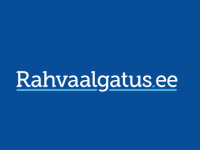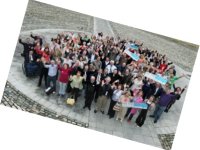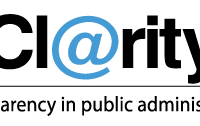En 2015, le Parlement de Wallonie a engagé une réforme de son Règlement ayant notamment pour objectif d’associer davantage les citoyens wallons au travail législatif des députés.
Dans ce cadre, plusieurs dispositifs ont été mis en place dont la modernisation et le renforcement du droit de pétition qui permet aux citoyens de déposer et soutenir des pétitions par voie électronique.
Il s’agit d’un projet novateur pour le Parlement qui se veut plus que jamais ouvert et à…
Innovation Tag Opengov: open state
The justice system is fundamental for democracy. To ensure citizen confidence, to transparent all its actions and to ensure the legitimacy of judicial decisions, the Judicial Branch joined the worldwide effort to promote open government partnership with the creation of an institutional policy of Open Justice, unique in the region, which promotes judicial management based on transparency, citizen participation and institutional collaboration. It will benefit all users of the Judicial Branch.
Education in Open Government is a project whose main objective is to foster social and civic competences for the exercise of one's democratic citizenship in children and young people. It involves three phases:
1) Teachers' training via a massive online open course (MOOC).
2) Implementation of educational projects in schools: for this purpose, 3 guides of Education in Open Government have been published: Primary Education, Secondary Education and High School.
3) Evaluation of the experiences.
Case Study
Ensuring Impartiality through Identity-Neutrality Provisions: the Case of Freedom of Information in…
The Internet has facilitated online services for citizens, but it has also facilitated Internet searches of service-seeking citizens by public officials, triggering conscious or unconscious bias. Via freedom of information (FOI) requests, academics provided evidence of this phenomenon at work. Brazil's Comptroller General (CGU) responded by implementing a check-box in its online FOI requesting system so that requesters could choose to remain anonymous. This innovation is a first for FOI regimes.
The Citizens' Assembly was an exercise in deliberative democracy, placing the citizen at the heart of important legal and policy issues facing Irish society. With the benefit of expert, impartial and factual advice the 100 citizen Members considered five topics. Their conclusions formed the basis of a number of reports and recommendations that were submitted to the Houses of the Oireachtas (the Irish Houses of Parliament) for further debate by our elected representatives.
The platform, Rahvaalgatus.ee is digital infrastructure that enforces the new civic right to address the Parliament of Estonia with collective proposals by citizens. The open-source platform enables to first discuss upon a relevant topic, then co-create the proposal, gather digital signatures to it, send the proposal to the parliament, and get updates on the process in the parliament.
In 2015, a constitutional reform on transparency allowed the INAI to propose a specific set of actions to adopt and institutionalize open government principles in Mexico. Thus, it designed a comprehensive strategy that mainly consisted of the implementation of provisions, methodologies and public policies to guide and articulate the design, implementation, and operation of open government in public institutions, the three levels of government and the three branches of government nationwide.
The Regione Emilia-Romagna has, since 2014, developed a pilot strategy to promote and coordinate the use of social media by local police departments.
Keeping in touch with citizens is the core business of every local police, but today, traditional communication tools and skills are not enough to respond to citizens' needs and demands.
As such, we established a network of people inside local police departments to share expertise in the area of social media.
We the Citizens is a democratic participatory project to ignite citizen involvement in democracy in Ireland. A pilot project found striking shifts in how participants feel about their ability to influence politics. The project tested whether a more participatory form of democracy could work in Ireland at a time when people felt adrift and disconnected from power. In the project, a representative group of citizens were randomly chosen to attend a Citizens’ Assembly in June 2011.
Institutions in the Greek government upload their acts and decisions on the Transparency Portal. Each document is digitally signed and assigned a unique number ensuring that acts and decisions are not valid unless published online. An open data tool enables the re-use of published information. The direct accountability brought by means of the Portal upon the administration, provides fewer opportunities for corruption since citizens and interested parties can monitor the publications and report…




